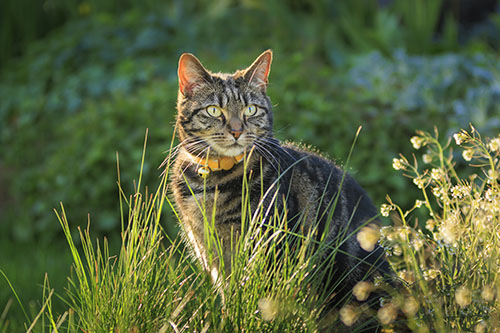Plant a Pet Safe Garden
Jun 19, 2023

If you share your yard with pets, you’ll want to make sure the space is safe. After all, dogs love playing fetch in the grass and sniffing around the landscaping, while cats enjoy napping in the sun and watching the birds.
Unfortunately, outdoor plants, insecticides, rodent poisons, and other gardening products are leading causes of trips to the vet. Avoid exposing your pets to these toxins by following these five tips!
Your local Co-op is here for all your lawn, garden, and pet care needs! Find the nearest location here.
For more content like this, check out the latest issue of The Cooperator.
Unfortunately, outdoor plants, insecticides, rodent poisons, and other gardening products are leading causes of trips to the vet. Avoid exposing your pets to these toxins by following these five tips!
- Know which plants are toxic to pets
- Prevent access to the compost pile
- Choose mulch that is safe for your pets
- Use caution with chemicals
- Eliminate standing water
Your local Co-op is here for all your lawn, garden, and pet care needs! Find the nearest location here.
For more content like this, check out the latest issue of The Cooperator.